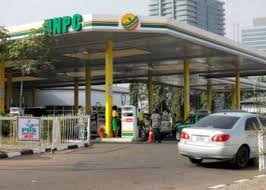BY DAN KUNLE
THE arguments presented to support the notion that President Bola Ahmed Tinubu (PBAT) must sell petrol at cheaper rates in Nigeria are, at best, baseless and overly emotional. They fail to account for the socioeconomic realities and behavioural patterns that have shaped our nation for decades. This is a response to an article by Dr Aliyu U published on the 12 October.
Misconception of Ownership
It is important to understand that the oil and gas produced in Nigeria are not wholly ours. The extraction and production of these resources are heavily dependent on foreign companies that bring their capital, technology, and managerial expertise into the equation. In truth, Nigeria lacks the capacity to independently exploit these resources. This isn’t just an issue limited to oil production — our inability to produce enough food to sustain our population demonstrates a broader challenge in self-reliance.
Decades of Mismanagement
Since oil production began in 1957, the Nigerian government has consistently failed to utilise the wealth generated to build the nation’s critical infrastructure. This includes investment in world-class schools, hospitals, roads, rail systems, power generation, and industries. Rather than reinvesting the profits into national development, successive leaders have chosen to spend the nation’s wealth on foreign luxuries, personal enrichment, and a lifestyle that is detached from the struggles of the average Nigerian. The question is not whether the International Monetary Fund (IMF) or any other external forces are to blame, but rather why our leaders have continuously chosen short-term personal gain over long-term national prosperity. No external organisation has stopped the Nigerian government from investing in its own development.
Leadership and Independence
The idea of blaming external institutions such as the International Monetary Fund (IMF) or the Organisation of Petroleum Exporting Countries (OPEC) for our current economic situation is misleading.
The failure to build a homegrown economic model that supports our political and economic independence is a product of leadership choices, not external pressure. Countries like India have been able to chart their own course, creating policies that prioritise their national interests. It is possible for Nigeria to do the same, but it requires visionary leadership committed to long-term growth and stability. The truth is, no external organisation or foreign entity has prevented Nigerian leaders from making the right decisions for the country. The superficial lifestyle enjoyed by the elite, while the majority of Nigerians suffer, is a reflection of our national priorities. Until we as a people change our mindset and leadership style, our poverty will only deepen, and unrest may follow.
Solving the Polycrisis
The multi-layered crisis that Nigeria has found itself in — ranging from economic instability to social unrest — was neither created by external forces nor will it be solved by them. It is a crisis that we, as a nation, have volunteered to perpetuate through poor leadership, mismanagement, and the lack of accountability. To resolve it, we need strong, visionary leaders who can redirect our national philosophy towards a productive, self-reliant lifestyle.
We must invest in mass education, socioeconomic reorientation, and the development of local industries. Supporting industrial giants like Dangote to build industries that reduce our reliance on imports is key. It’s not the threats to PBAT about 2027 or pressures from international bodies that will solve our problems — only internal reform can do that. We need to realign our economy with the realities of our polycrisis, while focusing on inflation control, GDP growth, and investment in industries that will sustain us long-term.
Petrol, while important, is just one product derived from petroleum. It should not dominate our national philosophy. Nigeria needs to focus on food security, safety, and industrialisation. PBAT must be supported in his efforts to resolve this crisis, and we must encourage policies that promote long-term national prosperity, rather than short-term fixes.


